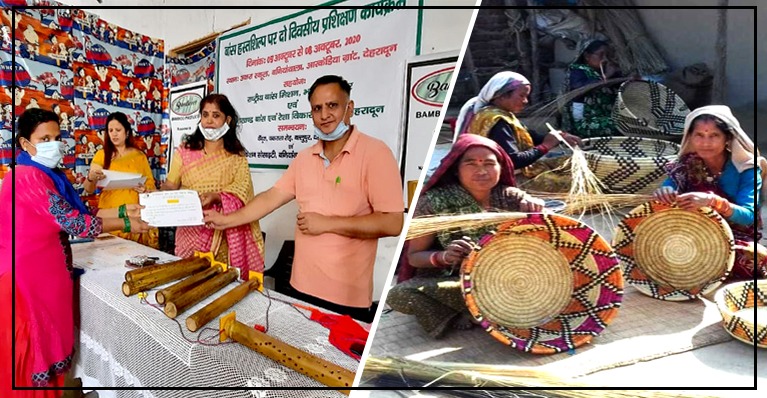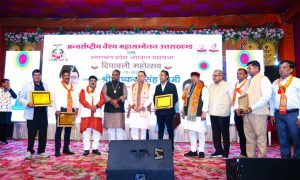Dehradun: In today’s world, everyone seeks financial stability. While some people pursue self-employment, others search for jobs. However, a few individuals are driven by a determination to uplift society, contributing to the vision of a self-reliant India. Tarun Pant of Dehradun is one such person.
After a 26-year career in the corporate sector, Tarun Pant felt a strong desire to revive the dying arts of Uttarakhand. This passion led him to leave a secure job at the peak of his career. Now residing in Ballupur, Dehradun, he is dedicated to improving the livelihoods of villagers. Thanks to his efforts, products made by about 3,000 rural women are now reaching both national and international markets.
Tarun Pant’s Vision
In 2017, Tarun Pant left his job and returned to Uttarakhand. His work in Europe had shown him the value of Indian handicrafts, prompting him to connect with villagers skilled in these crafts. He traveled across North East India, West Bengal, Odisha, Jharkhand, Uttarakhand, and Uttar Pradesh to study local handicrafts.
In the Khatima Sitarganj area, he discovered why the art of basket making was dying out. Companies had trained the villagers but left after securing their own profits, causing the villagers to lose faith in their craft. Tarun Pant decided to help them market their skills.
How It Started
In 2018, Tarun Pant began working with 20 Tharu women who wanted to continue their traditional handicrafts. He supported them by arranging training in various arts. To appeal to the international market, it was essential that the products be eco-friendly. Therefore, changes were made in the colors and materials used.
Recognizing that design development and marketing were crucial, Tarun Pant ensured these aspects received special attention. The initial 20 women were tasked with making products and training others, creating a network that would sustain rural livelihoods and preserve traditional crafts.
Products Launched in the Market
Today, products made by these artisans are sold in 37 countries, including the US and Europe, attracting interest from major companies in Uttarakhand. Marketing these products proved successful, with the number of artisans growing from 20 to 2,000 within two years. Currently, 3,000 rural women are involved, earning between Rs 10,000 to 15,000 per month. The success has also attracted youth to this work.
Despite challenges during the COVID-19 pandemic, the initiative continued. Big companies like Patanjali showed interest, and artisans were trained to make garments, ensuring income stability even during tough times.
Creating Careers for Villagers
Tarun Pant holds a bachelor’s degree in science and a master’s degree in management. His extensive corporate experience, both in India and abroad, has been instrumental in creating sustainable support systems for rural artisans.
In three and a half years, he has connected with over 3,000 artisans in the Sitarganj region, helping them develop market-friendly products. The team now produces grass products, bamboo items, and garments. Tarun Pant’s goal is to provide employment to 20,000 rural women, contributing significantly to making India self-reliant.












